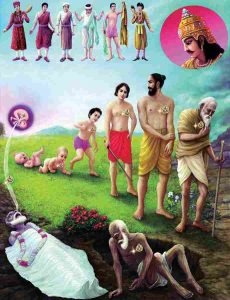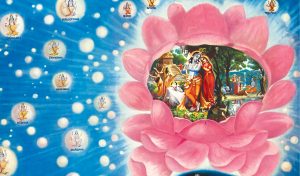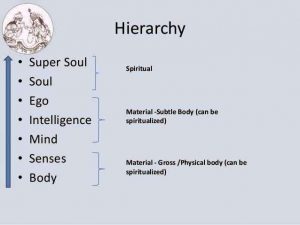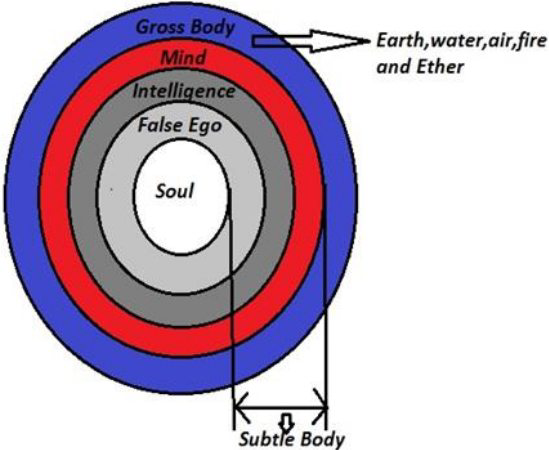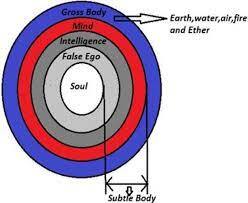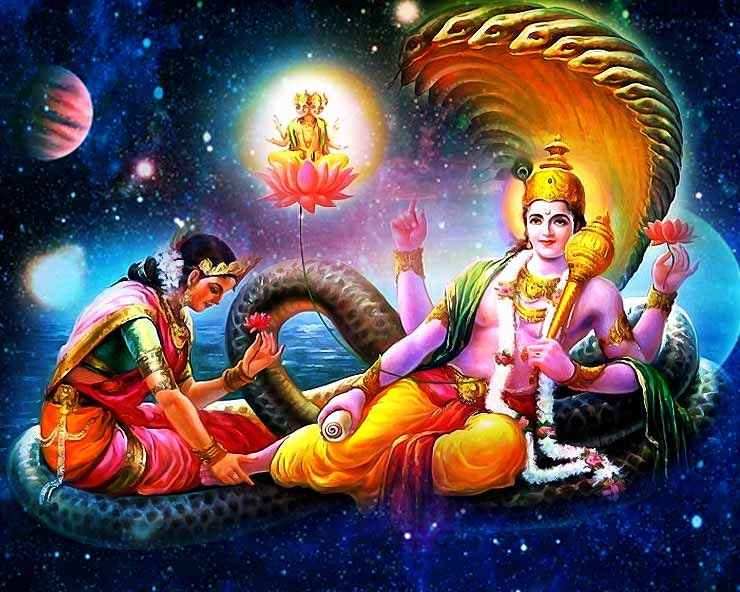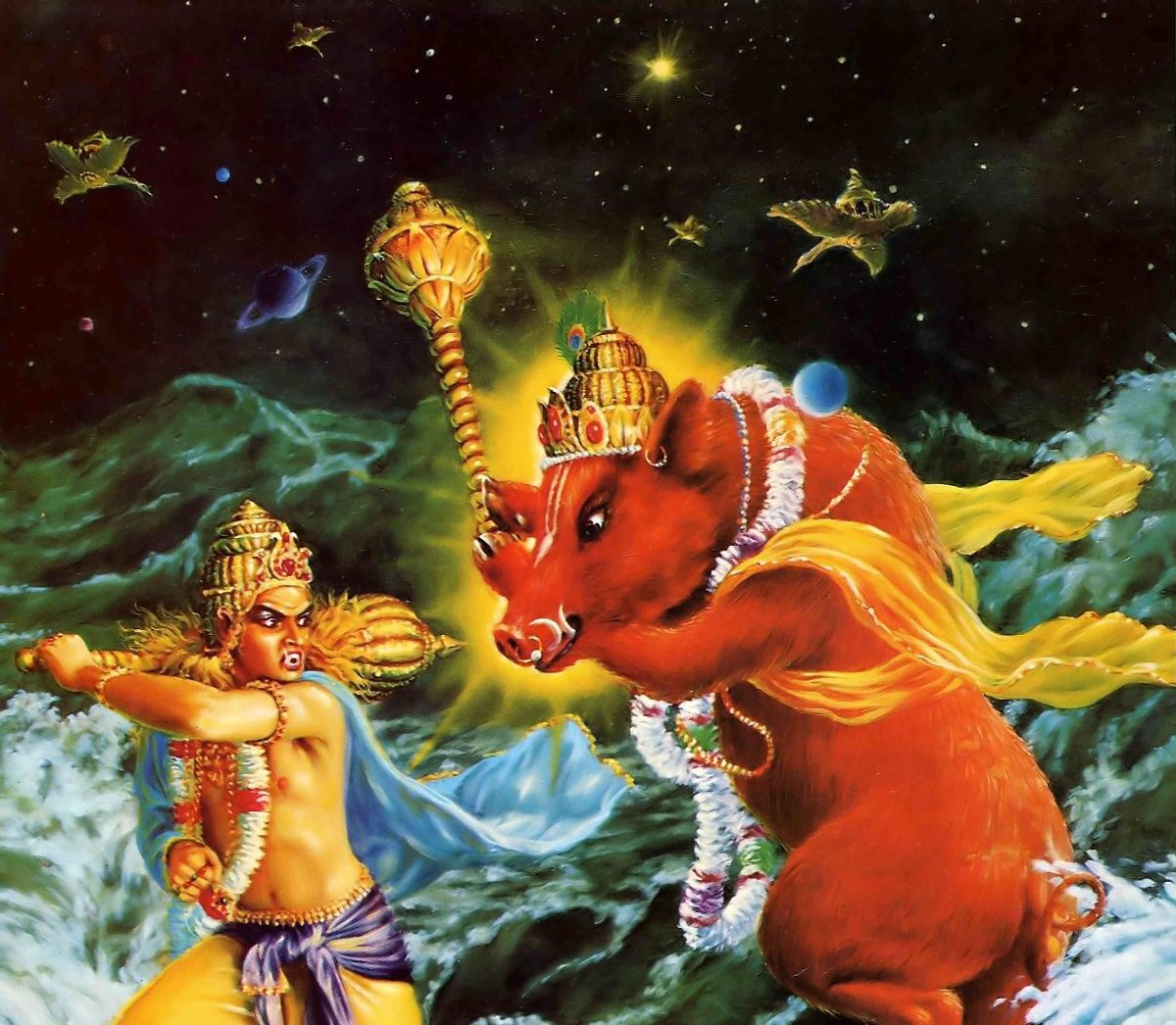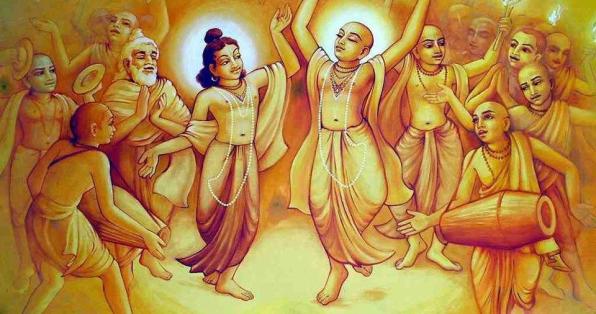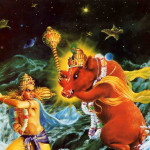The marginal position of the jiva soul.
“The Personality of Godhead and His emanations, such as the jīva souls, are simultaneously different and nondifferent, just like the sun and its expanding rays. There are more jīvas than anyone can count, and each of them is eternally alive with consciousness, as the śrutis confirm: nityo nityānāṁ cetanaś cetanānām. (Kaṭha Upaniṣad 5.13 and Śvetāśvatara Upaniṣad 6.13) When they are sent forth from the body of Mahā-Viṣṇu at the beginning of material creation, the jīvas are all equal in the sense that they are all atomic particles of the Lord’s marginal energy. But according to their differing conditions, they divide into four groups: Some are covered by ignorance, which obscures their vision like a cloud. Others become liberated from ignorance through a combination of knowledge and devotion. A third group of souls become endowed with pure devotion, with a slight mixture of desire for speculative knowledge and fruitive activity. Those souls attain purified bodies composed of perfect knowledge and bliss with which they can engage in the Lord’s service. Finally, there are those who are devoid of any connection with ignorance; these are the Lord’s eternal associates. The marginal position of the jīva soul is described in the Nārada Pañcarātra:
yat taṭa-sthaṁ tu cid-rūpaṁ sva-saṁvedyād vinirgatam
rañjitaṁ guṇa-rāgeṇa sa jīva iti kathyate
“The taṭa-stha potency should be understood as emanating from the Lord’s saṁvit [knowledge] energy. This emanation, called the jīva, becomes conditioned by the qualities of material nature.” Because the minute jīva lives within the margin between the Lord’s external, illusory potency, Māyā, and His internal, spiritual potency, cit, the jīva is called taṭa-stha, “marginal.” When he earns liberation by cultivating devotion to the Lord, however, he comes completely under the shelter of the Lord’s internal potency, and at that time he is no longer tainted by the modes of material nature. Lord Kṛṣṇa confirms this in Bhagavad-gītā (14.26):
māṁ ca yo ’vyabhicāreṇa bhakti-yogena sevate
sa guṇān samatītyaitān brahma-bhūyāya kalpate
“One who engages in full devotional service, unfailing in all circumstances, at once transcends the modes of material nature and thus comes to the level of Brahman.”
Source:A.C. Bhaktivedanta Swami Prabhupada (2014 edition), “Srimad Bhagavatam”, Tenth Canto, Chapter 87 – Text 32



